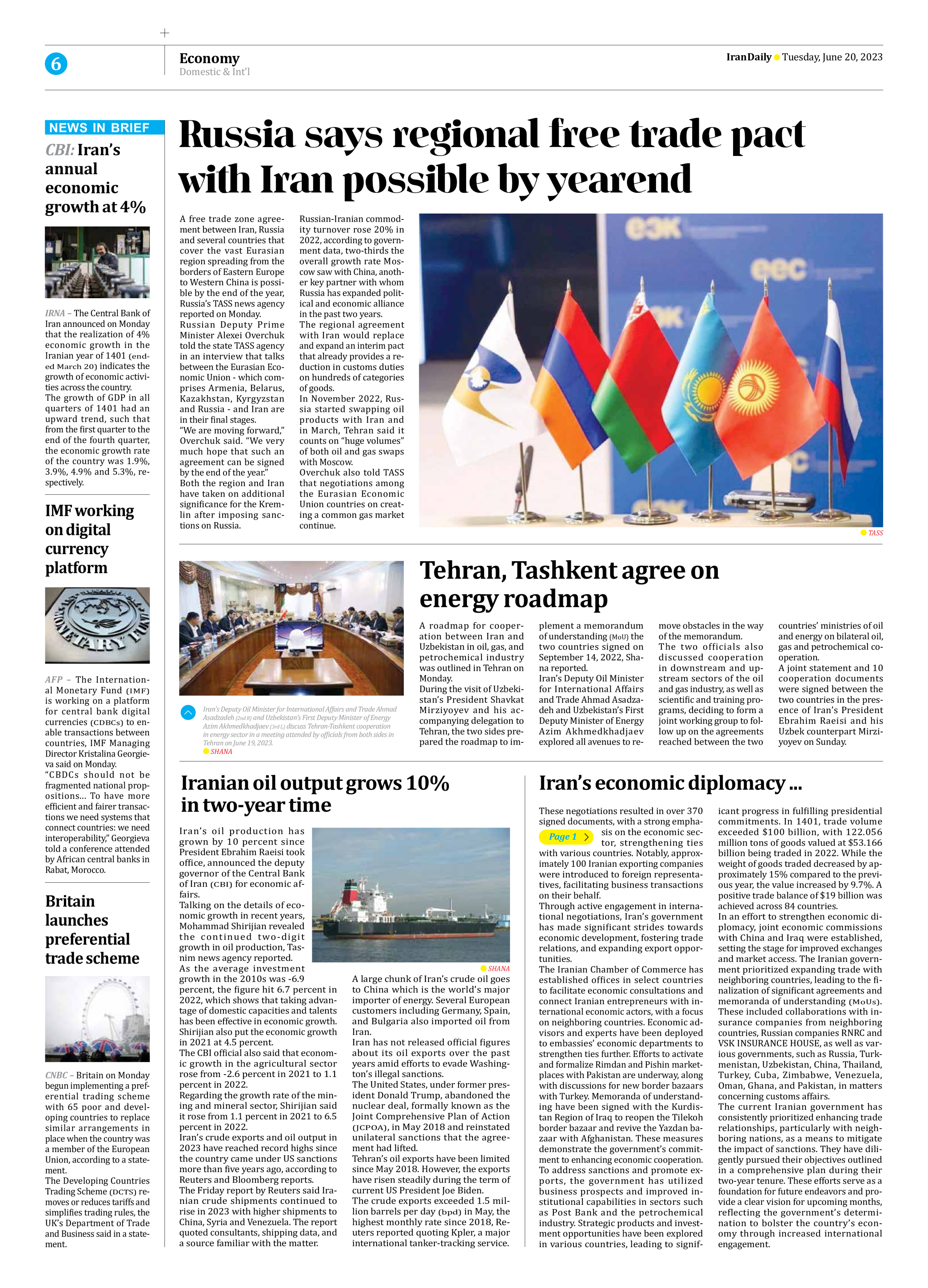
Iran’s economic diplomacy ...
Page 1
These negotiations resulted in over 370 signed documents, with a strong emphasis on the economic sector, strengthening ties with various countries. Notably, approximately 100 Iranian exporting companies were introduced to foreign representatives, facilitating business transactions on their behalf.
Through active engagement in international negotiations, Iran’s government has made significant strides towards economic development, fostering trade relations, and expanding export opportunities.
The Iranian Chamber of Commerce has established offices in select countries to facilitate economic consultations and connect Iranian entrepreneurs with international economic actors, with a focus on neighboring countries. Economic advisors and experts have been deployed to embassies’ economic departments to strengthen ties further. Efforts to activate and formalize Rimdan and Pishin marketplaces with Pakistan are underway, along with discussions for new border bazaars with Turkey. Memoranda of understanding have been signed with the Kurdistan Region of Iraq to reopen the Tilekoh border bazaar and revive the Yazdan bazaar with Afghanistan. These measures demonstrate the government’s commitment to enhancing economic cooperation.
To address sanctions and promote exports, the government has utilized business prospects and improved institutional capabilities in sectors such as Post Bank and the petrochemical industry. Strategic products and investment opportunities have been explored in various countries, leading to significant progress in fulfilling presidential commitments. In 1401, trade volume exceeded $100 billion, with 122.056 million tons of goods valued at $53.166 billion being traded in 2022. While the weight of goods traded decreased by approximately 15% compared to the previous year, the value increased by 9.7%. A positive trade balance of $19 billion was achieved across 84 countries.
In an effort to strengthen economic diplomacy, joint economic commissions with China and Iraq were established, setting the stage for improved exchanges and market access. The Iranian government prioritized expanding trade with neighboring countries, leading to the finalization of significant agreements and memoranda of understanding (MoUs). These included collaborations with insurance companies from neighboring countries, Russian companies RNRC and VSK INSURANCE HOUSE, as well as various governments, such as Russia, Turkmenistan, Uzbekistan, China, Thailand, Turkey, Cuba, Zimbabwe, Venezuela, Oman, Ghana, and Pakistan, in matters concerning customs affairs.
The current Iranian government has consistently prioritized enhancing trade relationships, particularly with neighboring nations, as a means to mitigate the impact of sanctions. They have diligently pursued their objectives outlined in a comprehensive plan during their two-year tenure. These efforts serve as a foundation for future endeavors and provide a clear vision for upcoming months, reflecting the government’s determination to bolster the country’s economy through increased international
engagement.







